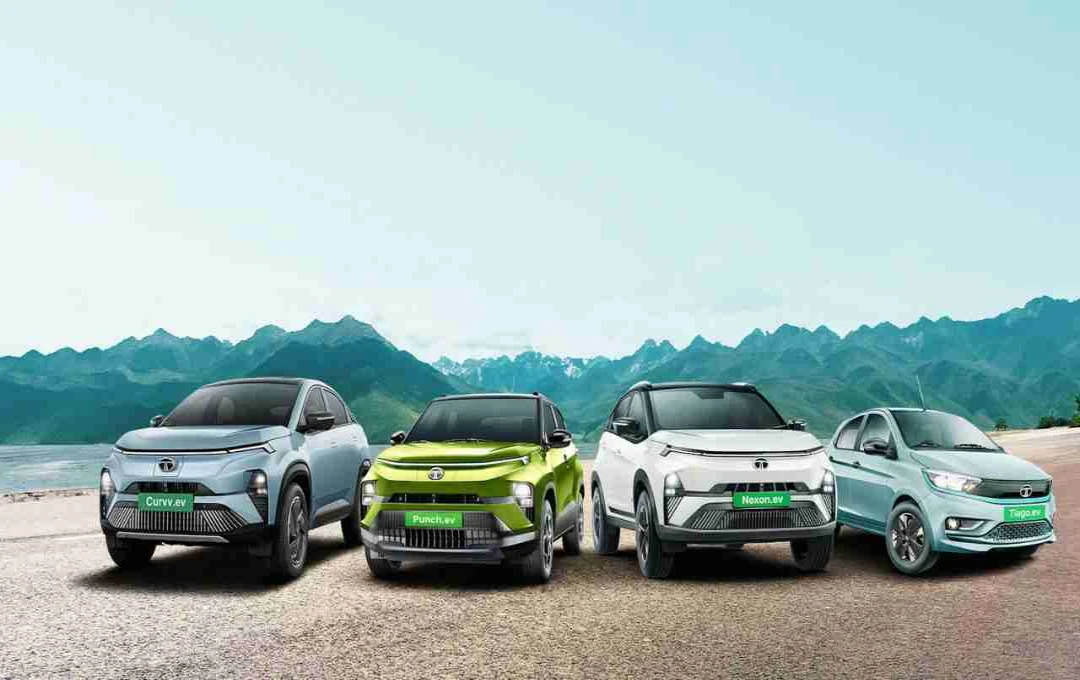According to reports, India will have 123 million electric vehicles by 2032. The adoption of electric vehicles is crucial for environmental protection and achieving the net-zero carbon emission target, supported by the government's FAME-2 scheme.
Technology: The use of Electric Vehicles (EVs) in India is rapidly increasing. A recent report suggests that by 2032, approximately 123 million electric vehicles will be on Indian roads. This report, jointly prepared by the India Energy Storage Alliance (IESA) and Customized Energy Solutions (CES), provides crucial information about the increasing number of electric vehicles in the future and their benefits.
The Growing Importance of Electric Vehicles and Their Environmental Impact
The increasing use of electric vehicles is helping to reduce carbon emissions in India. According to a report, a target of 30% electric vehicles will be achieved by 2030, and India aims to achieve "net-zero carbon emissions" by 2070. This means India will need to take positive steps for the environment to reduce pollution.
The use of electric vehicles will not only benefit the environment but will also reduce dependence on petrol and diesel. Furthermore, the increasing use of electric vehicles will improve energy consumption, ultimately strengthening India's energy policy. Government schemes and incentives will further accelerate this transition.

Government Schemes Provide Strong Support to Electric Vehicles
The Indian government has implemented policies like the FAME-2 scheme to promote electric vehicles. This scheme provides subsidies on electric vehicles, making them more affordable and convenient. The aim is to attract people towards electric vehicles as a preferable alternative to traditional petrol and diesel vehicles. Additionally, the government is also providing assistance for building charging stations to facilitate convenient charging for electric vehicle owners. These measures will not only increase the number of electric vehicles but will also reduce pollution. This scheme is a significant step towards environmental protection in the country and will help achieve the electric vehicle target by 2030.
The Future of Electric Vehicles in India: What the Report Says
The number of electric vehicles in India is projected to reach 123 million by 2032. A report by IESA and CES has revealed several key figures. According to the report, the share of electric two-wheelers and three-wheelers is likely to reach 80%. Furthermore, the share of private electric cars could reach 30%, commercial vehicles 70%, and electric buses 40%.
This report also indicates that by 2030, the use of electric vehicles will increase rapidly, leading to a significant rise in their presence on India's road network. The use of electric vehicles will reduce pollution and benefit the environment. Simultaneously, it will contribute to reducing India's carbon emissions, a crucial step towards the net-zero goal.
The Growing Impact of Electric Vehicles in India: On the Path of Change

The number of electric vehicles in India is expected to increase rapidly, and this change will be visible on a large scale in the next few years. According to the IESA and CES report, 123 million electric vehicles will be on Indian roads by 2032. Currently, 93% of electric vehicles comprise two-wheelers and three-wheelers, which are the most commonly used electric vehicles in India. However, the number of electric cars and electric buses is still relatively low, but they are gradually increasing.
By 2026, the share of electric cars is projected to increase to 6%. Meanwhile, the number of electric buses and trucks is also gradually increasing, although the number of vehicles in this sector remains low. As people shift towards electric vehicles, their numbers will increase. Simultaneously, government schemes like the FAME-2 scheme and the promotion of charging station networks will accelerate this transition. The increasing use of electric vehicles will not only reduce pollution but will also help reduce India's carbon emissions.
The Way Forward for EVs?
To increase the use of electric vehicles, it is essential for the government, industry, and consumers to work together. This will not only benefit the environment but will also reduce dependence on petrol and diesel. Developing charging infrastructure is also crucial to enable convenient charging for electric vehicle owners. Furthermore, raising public awareness about the benefits of electric vehicles and their positive environmental impact is necessary. If we all work together in this direction, the future of electric vehicles in India will be bright.














